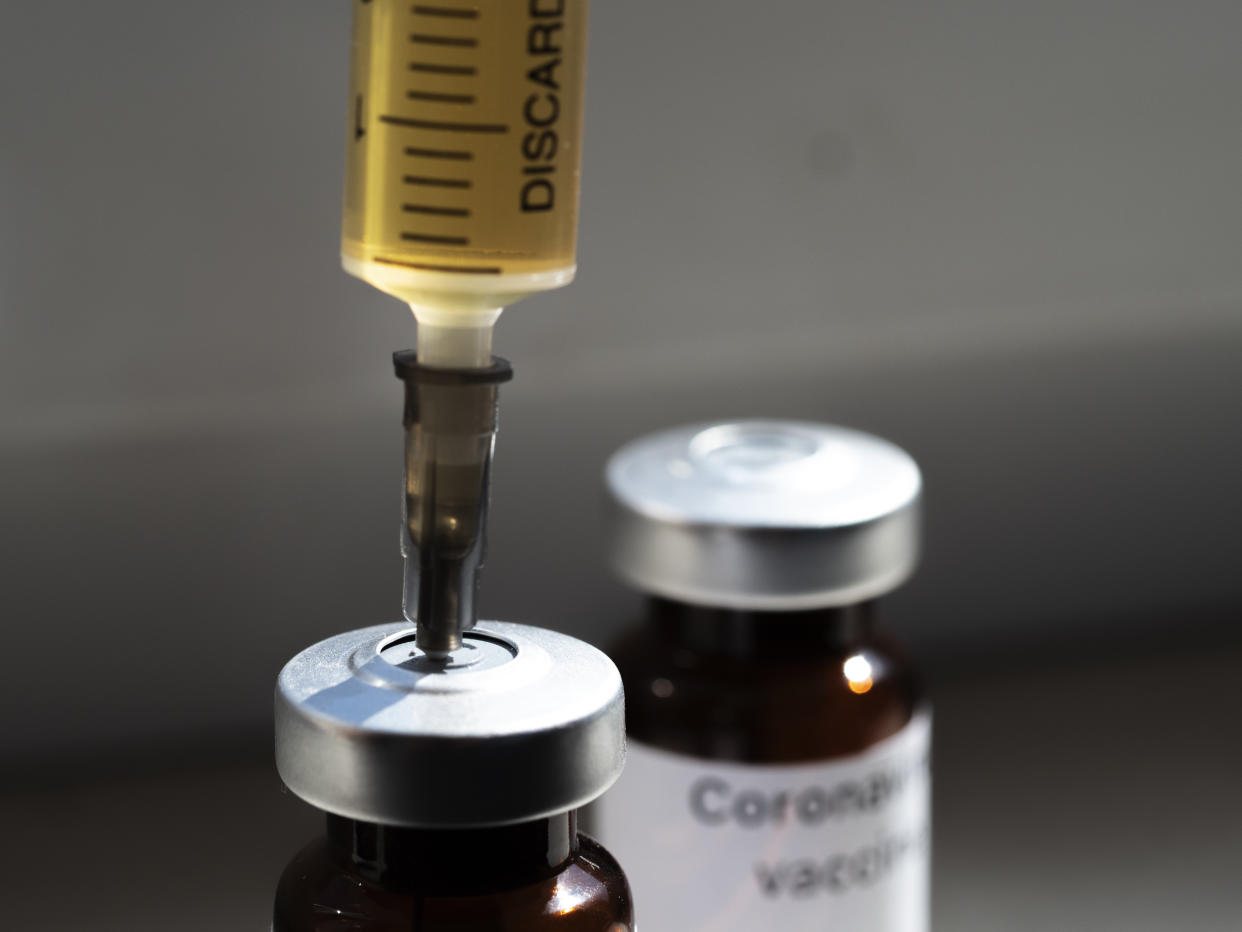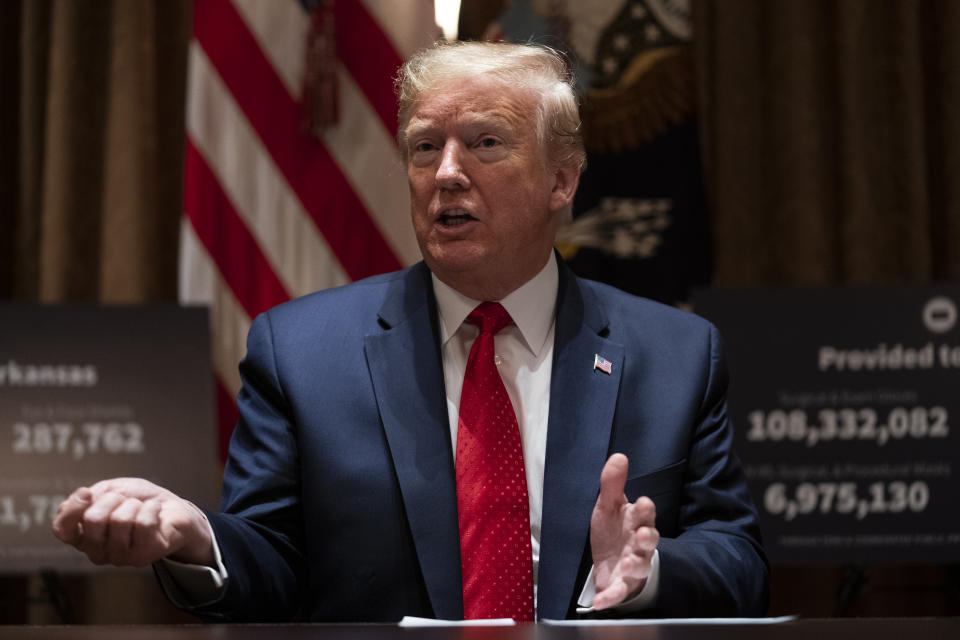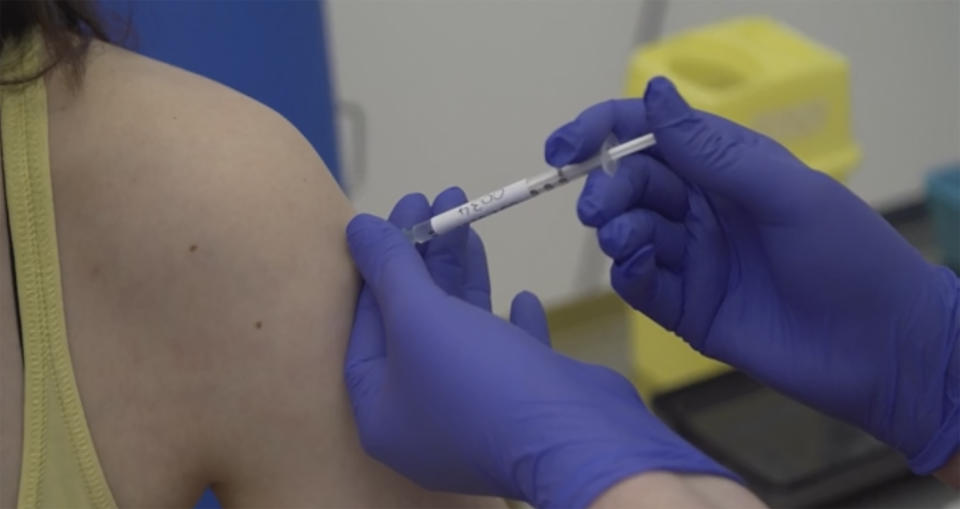Coronavirus: Quarter of US adults have little or no interest in taking vaccine, poll finds

While the world is hoping a coronavirus vaccine can quickly be found, a new poll has suggested that a quarter of US adults have little or no interest in taking it.
According to the Reuters/Ipsos poll of 4,428 people, respondents who reacted negatively to a possible vaccine cited concerns that a fast approach to finding one could be dangerous, with 40% saying they believed the vaccine is riskier than COVID-19.
The poll found that 14% of people were not at all interested in taking a vaccine, while 10% said they were not very interested.
Elsewhere in the poll, 36% of those surveyed said they would be less willing to take a vaccine if it was recommended by Donald Trump, who said a vaccine will be available by the end of the year.
This compares to 14% who said the recommendation from the president would make them more likely to take it.

Less than two-thirds of respondents said they were either “very” or “somewhat” interested in a COVID-19 vaccine, despite deaths in the US being close to the 100,000 mark, according to Johns Hopkins.
Dr William Schaffner, an infectious disease and vaccine expert at Vanderbilt University Medical Centre in Nashville, said: “It’s a little lower than I thought it would be with all the attention to COVID-19.
“I would have expected somewhere around 75%.”
Peter Hotez, who is developing a vaccine at the National School of Tropical Medicine at Baylor College of Medicine, added: “It’s not surprising a significant percentage of Americans are not going to take the vaccine because of the terrible messaging we’ve had, the absence of a communication plan around the vaccine and this very aggressive anti-vaccine movement.”
Voting habits also reflect different attitudes to a vaccine, with nearly one in five Republicans saying they have no interest in taking a vaccine – over twice as many as Democrats who said the same.
The findings of the survey come as scientists at the University of Oxford trial a potential coronavirus vaccine.
Pharmaceutical firm AstraZeneca has said it has the capacity to manufacture one billion doses of the potential COVID-19 vaccine and will begin supply in September.
It has secured the first agreements for at least 400 million doses of the vaccine and aims to conclude further deals in order to expand capacity over the next few months to "ensure the delivery of a globally accessible vaccine”.

On Monday, British health secretary Matt Hancock said that if the University of Oxford's COVID-19 vaccine candidate proves successful, then up to 30 million doses for the UK could be available by September.
The Oxford team is currently testing the vaccine candidate in humans.
Meanwhile, a separate group from Imperial College London is expected to start human trials next month.
However, some scientists have warned that a vaccine might not be widely available until next year.
Professor Robin Shattock, head of mucosal infection and immunity at Imperial College London, told the BBC he believes vaccines "won't be readily available for widescale use until the beginning of next year as the kind of most optimistic estimation.”
Coronavirus: what happened today
Click here to sign up to the latest news, advice and information with our daily Catch-up newsletter
Read more about COVID-19
How to get a coronavirus test if you have symptoms
What you can and can’t do under lockdown rules
In pictures: How UK school classrooms could look in new normal
How public transport could look after lockdown
How our public spaces will change in the future
Help and advice
Read the full list of official FAQs here
10 tips from the NHS to help deal with anxiety
What to do if you think you have symptoms
How to get help if you've been furloughed



